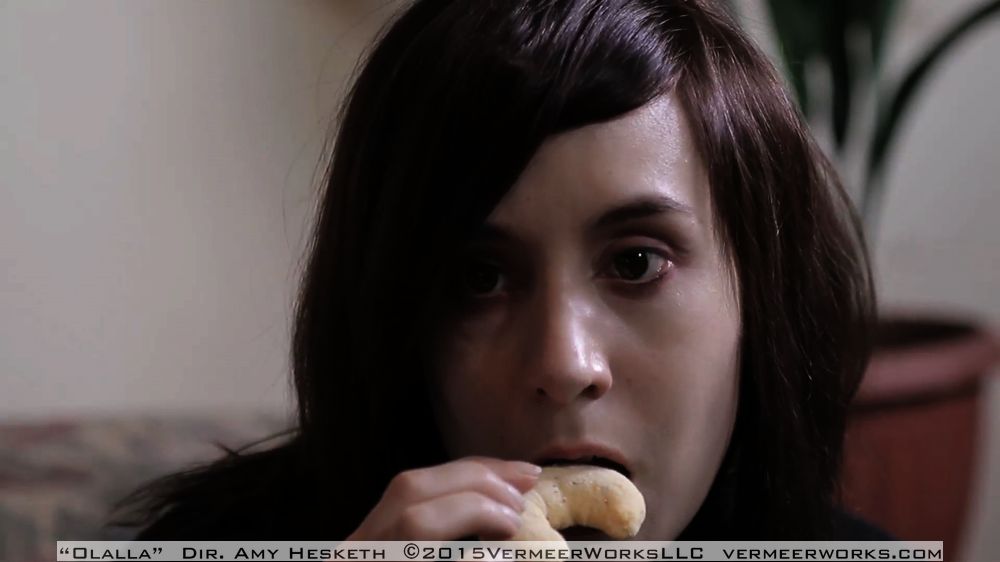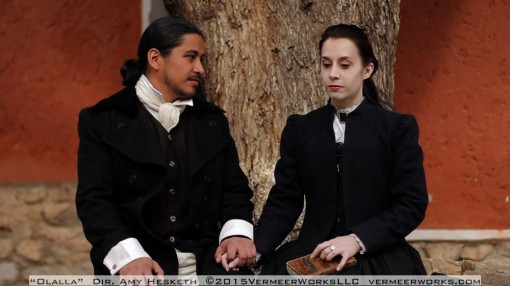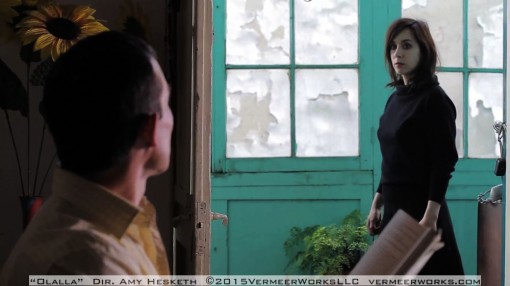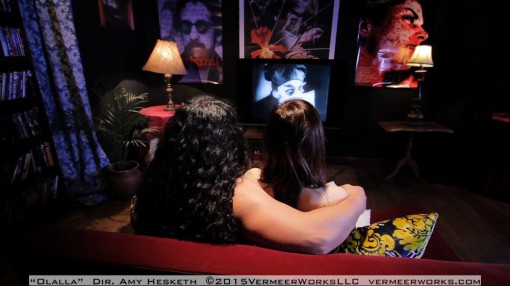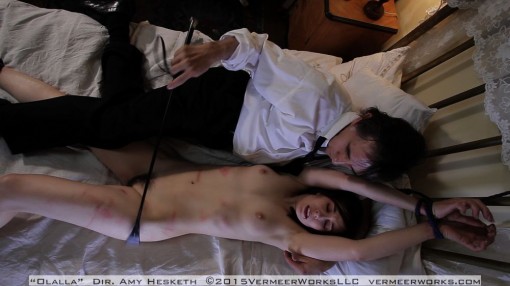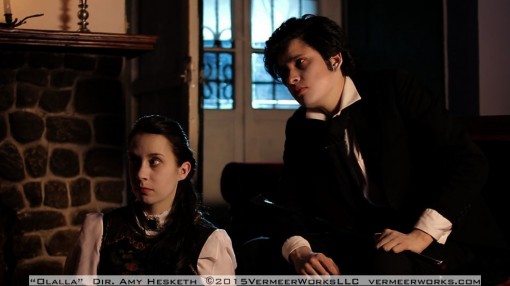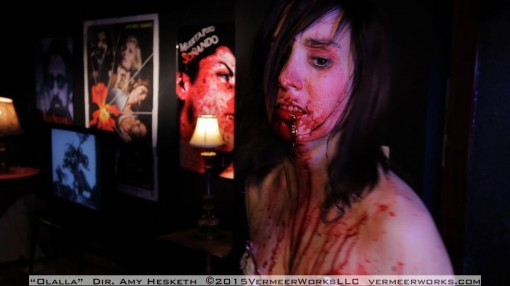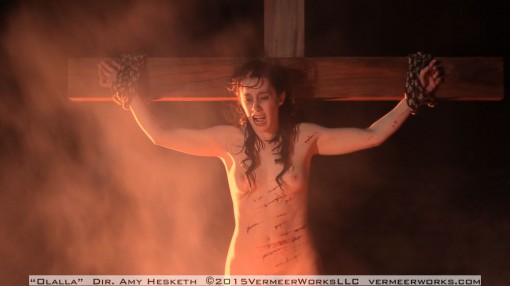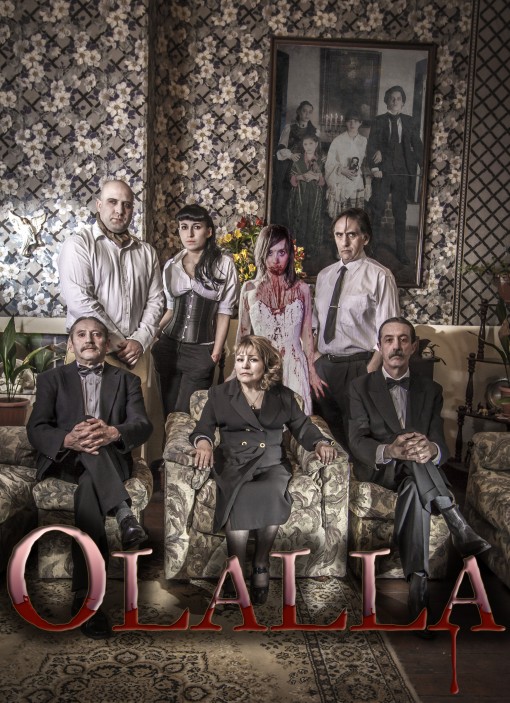Olalla is a freeform adaptation, brought to the present day, that uses collective memory as a device and finds in its situations a fertile ground on which to generate an environment of tension required by the staging. Considering this is Hesketh’s fourth film, a maturity in the work is clear, as well as attention to her craft.
Olalla, adapted horror made in Bolivia
By Claudio Sánchez – Film critic
Published in Periodico Cambio (February 7, 2015)
A year before Robert Louis Stevenson would publish The Strange Case of Dr. Jekyll and Mr. Hyde, the Scottish writer published, in 1885, the story of a wounded soldier that returns to Spain; where he meets a lovely young woman, daughter of his host, who conceals a great mystery. This tale is called Olalla.
Amy Hesketh adapted Stevenson’s work, and she’s brought it to the screen using two separate timelines: present day La Paz, and an estate at the end of the nineteenth century. From the start it is understood that Olalla, the lead character played by Hesketh herself, could be a vampire.
The opening dialog uses Murnau’s Nosferatu as both a pretext and a mirrored view, with the knowledge that vampires have no reflection of their own. This uncovers the story’s underlying horror, while also serving as an invitation to find the film’s various cinematic references.
A story of monstrous creatures who have survived the passing of the years; a family that preserves their customs and manners of punishment up to the 21st century. The display of repression tinged with the naivete of an underlying romanticism, that borders on corny —typical of current vampire fiction — places in evidence the conflict of wanting to be a normal person and abandon one’s own roots.
Olalla is a freeform adaptation, brought to the present day, that uses collective memory as a device and finds in its situations a fertile ground on which to generate an environment of tension required by the staging.
Considering this is Hesketh’s fourth film, a maturity in the work is clear, as well as attention to her craft. Olalla confirms an intention of reinterpreting a certain kind of literature and taking it to film, but it also shows a need to generate a self-referential work; where producer and director can quote themselves.
The film is currently available from VermeerWorks.
